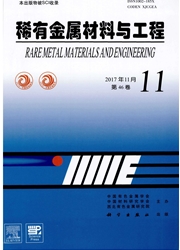

 中文摘要:
中文摘要:
Nanoparticle PCR 是一个新奇方法优化 DNA 扩大。它表现很好在改进特性,提高敏感和速度。几机制在以前的研究被建议:当其它被归因于 AuNPs 的热转移性质时,一个人基于在金 nanoparticles (AuNPs ) 和 DNA 之间的相互作用。在这篇论文,我们建议在 AuNPs 和 DNA 聚合酶罐头之间的相互作用显著地影响 PCR。首先, DNA 聚合酶的增加能消除过量 AuNPs 的禁止的效果。第二, AuNPs 的增加将增加需要的 PCR 产品的产量并且使最佳成为 DNA 聚合酶行动的集中更高珍视。第三当过量聚合酶可能禁止扩大效率时, AuNPs 能颠倒这个过程和 PCR 的收益扩大。把我们建议的结果基于这些可能的机制 AuNPs 可能调制聚合酶的活动并且改进 PCR 扩大。
 英文摘要:
英文摘要:
Nanoparticle PCR is a novel method to optimize DNA amplification. It performs well in improving specificity, enhancing sensitivity and speed. Several mechanisms were proposed in previous studies: one was based on the interaction between gold nanoparUcles (AuNPs) and DNA while the other was attributed to the heat transfer property of AuNPs. In this paper, we propose that the interaction between AuNPs and DNA polymerase can significantly influence PCR. First, the addition of DNA polymerase can eliminate the inhibitory effects of excess AuNPs. Second, the addition of AuNPs will increase yield of the desired PCR product and make the optimum concentration of DNA polymerase move to higher value. Third, while excess polymerase might inhibit amplification efficiency, AuNPs can reverse this process and the yield of PCR amplification. Based on these results we propose a possible mechanism that AuNPs might modulate the activity of polymerase and improve PCR amplification.
 同期刊论文项目
同期刊论文项目
 同项目期刊论文
同项目期刊论文
 Sequence-specific detection of femtomolar DNA via a chronocoulometric DNA sensor (CDS): Effects of n
Sequence-specific detection of femtomolar DNA via a chronocoulometric DNA sensor (CDS): Effects of n Switchable charge transport path via a potassium ions promoted conformational change of G-quadruplex
Switchable charge transport path via a potassium ions promoted conformational change of G-quadruplex Artificial Nano-Bio-Complexes: Effects of Nanomaterials on Biomolecular Reactions and Applications i
Artificial Nano-Bio-Complexes: Effects of Nanomaterials on Biomolecular Reactions and Applications i An electrochemicalsensorforpesticideassaysbasedoncarbon nanotube-enhancedacetycholinesteraseactivity
An electrochemicalsensorforpesticideassaysbasedoncarbon nanotube-enhancedacetycholinesteraseactivity Differential impairment of regulatory T cells rather than effector T cells by paclitaxel-based chemo
Differential impairment of regulatory T cells rather than effector T cells by paclitaxel-based chemo Semiconductor nanocomposites of emissive flexible random copolymers and CdTe nanocrystals: Preparati
Semiconductor nanocomposites of emissive flexible random copolymers and CdTe nanocrystals: Preparati A facile route to semiconductor nanocrystal-semiconducting polymer complex using amine-functionalize
A facile route to semiconductor nanocrystal-semiconducting polymer complex using amine-functionalize Microwave-assisted synthesis of water-dispersed CdTe nanocrystals with high luminescent efficiency a
Microwave-assisted synthesis of water-dispersed CdTe nanocrystals with high luminescent efficiency a Synthesis and characterization of a novel water-soluble conjugated-block copolymer containing carboh
Synthesis and characterization of a novel water-soluble conjugated-block copolymer containing carboh Synthesis, characterization and properties of poly (p-phenyleneethynylene) conjugated polymers conta
Synthesis, characterization and properties of poly (p-phenyleneethynylene) conjugated polymers conta Optical detection of mercury(II) in aqueous solutions by using conjugated polymers and label-free ol
Optical detection of mercury(II) in aqueous solutions by using conjugated polymers and label-free ol 期刊信息
期刊信息
